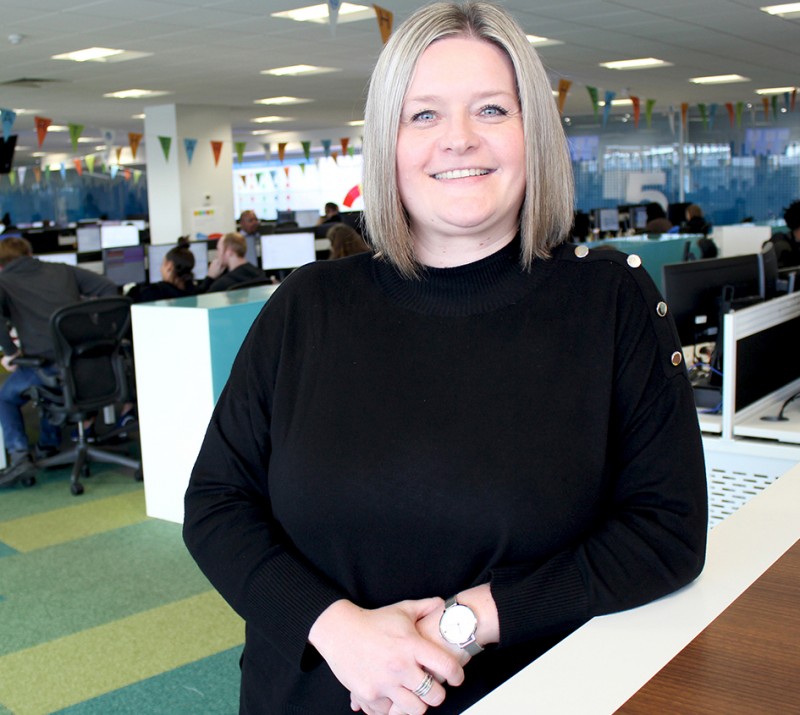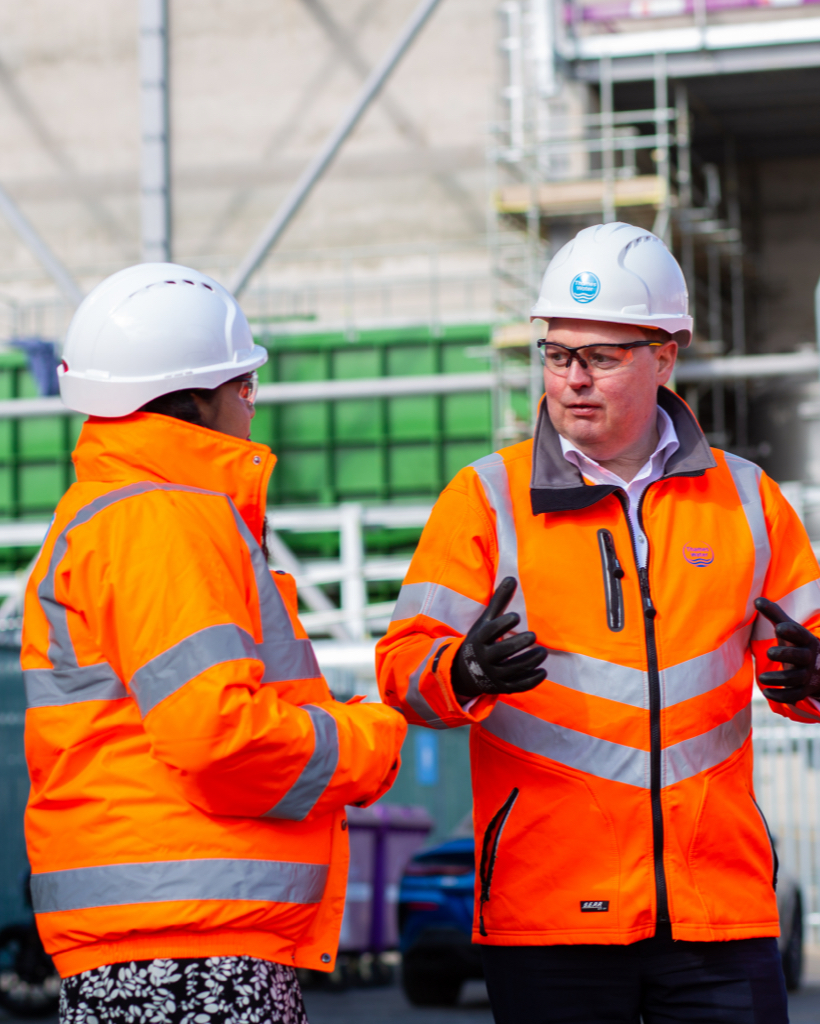Let’s do exciting sewer work without the emergencies

Louise Paterson has spent a lot of her working life at the sharp end of delivering customer service.
For 10 years, she worked in a police emergency call centre.
Now, as head of operations in the customer solutions centre (CSC), the nerve centre of Thames Water’s wastewater maintenance operation, she is doing her best to design emergencies out of existence.
To mark International Women’s Day, we’re showcasing the work of women who work at Lanes, the UK’s largest independent drainage specialist.
Louise has a key role in the Lanes utilities team that is the wastewater network services (WNS) maintenance partner for Thames Water, the UK’s largest water company.
She is helping to shape and implement an approach to service delivery that aims to delight the water company’s 15 million wastewater customers. Preventing sewer emergencies is central to that approach.
Louise says: “I’ve been working for Lanes for five years. In that time, we’ve made great steps forward working as one team with Thames Water to improve wastewater services and customer experience.
“We’ve gone from being reactive – that is responding to emergencies as they occur – to a much more planned service to head off problems before they occur. And now we’re beginning to use big data to predict maintenance needed even more accurately. It’s very exciting.”
Louise joined Thames Valley Police as a 999 call handler and worked her way up to being an assistant operational manager. She joined Lanes as reactive operational manager in 2015 and was made Lanes’ head of the CSC in January 2018.
“For some of the time in the police, we were obviously dealing with life and death issues,” says Louise. “That’s not quite the same at Lanes but the similarities are obvious, and I truly view ourselves as the 4th emergency service.
“Every day, we’re juggling a lot of issues at once, and we’re helping some customers overcome very real difficulties. So, we’re aware every day of the responsibility we have to be both professional and caring.”
The CSC opened in Slough, Berkshire, in 2016, heralding a new and innovative model in wastewater maintenance service delivery.
It brought together Lanes and Thames Water personnel under one roof, allowing more streamlined, agile and capable customers services to be developed.
The CSC teams plan, schedule and liaise with customers about the 1,100 jobs carried out every day by Lanes and Thames Water operational teams, including sewer surveys, sewer unblocking, pipe excavations and pipe lining.
On any given day, Louise’s team receives between 60 to 80 calls per day from wastewater customers and makes around 300 to 400 outbound customer calls. It is all about being proactive with customers, says Louise. Receiving inbound calls is seen as a failure. On top of that, they receive and make around 600 calls with Lanes field operatives, their internal customers.
Having the CSC has allowed Lanes and Thames water to reimagine service delivery. Louise and her team, working with Thames Water colleagues, have been at the forefront of that process.
Key to that has been analysing data to understand precisely how, where, when and why the myriad of different wastewater assets respond to the pressures they are put under.
This better understanding underpins a new way to organise customer services. In essence, says Louise, they have moved from responding first to those who shout loudest to those whose need is greatest.
Over the last 18 months, the planning team has been organised into three different roles: forward planners, who manage non-urgent maintenance work; complex planners, who take responsibility for urgent issues, such as internal sewer floods; and in-day coordinators, who make sure that all work planned for a particular day gets done, or is rescheduled.
Key members of the team are responsible for the end-to-end journey taking by each customer as service is delivered. Every effort is made, though effective communication, smart data systems and a commitment to delivering high quality, safe service, to making customers happy and keeping wastewater systems working optimally.
Where service slips, there are escalation procedures in place to pull things back in shape. No system is perfect, but results have been impressive.
Pollution incidents are down significantly as are the number of internal floods. The number of repeat customers contacts is at a record low, while the level of planned sewer cleaning is at a record high.
Louise says: “With Net Promotor Score – a measure of how likely a customer will recommend you to a friend – about to be introduced to the water industry, it’s vital that we reduce the risk of sewer problems impacting on our customers.
“Our planned sewer maintenance team does just that. They do a fantastic job of keeping our sewers free flowing and healthy, so problems are less likely to happen.”
Louise and the senior team she is part of are not just concerned about customers. The personal development and wellbeing of more than 100 staff in the CSC are also critical.
Colleagues can access an award-winning wellbeing support programme, delivered by a qualified wellbeing and mental health practitioner, assisted by a team of mental health first aiders. There is also a perks programme to reward individual and team success.
In the last 12 months, Louise has led the roll-out of another award-winning initiative – Pathway to Success – which provides a every colleague with a clear career and pay structure. Over the same period, staff retention has improved by 25%.
Louise says: “Team training, involving Lanes and Thame Water teams learning together, is important to us. We’re now looking to develop more multi-skilled teams to enhance capability, awareness and job satisfaction.”
Increasingly, data is being used to pre-empt and plan for weather events – a process made all the more important because of the more volatile, wetter weather in the UK, attributed to climate change.
Building one happy, high-performance team. Doing more with the same resources. Solving customer problems. Changing the way service is delivered with the changing weather. But, most of all, stopping those sewer emergencies. It’s all in a day’s work for Louise and her team.







